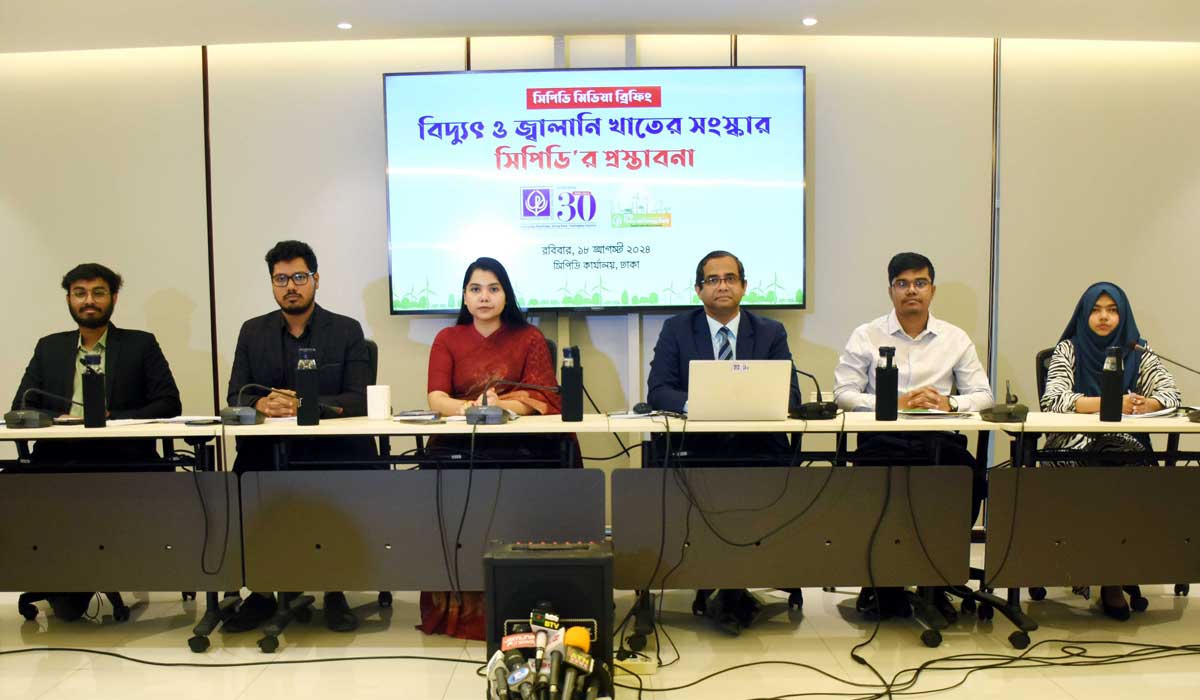
The new interim government of Bangladesh faces an urgent need to reform Bangladesh’s power and energy sector. These reforms must address a broad range of areas, including policies, laws, and government bodies, as well as essential operational reforms. A critical component of this reform agenda will be significantly enhancing transparency and accountability across the sector. Some of the reforms include repealing the ‘Quick Enhancement of Electricity and Energy Supply (Special Provision) Act, 2010’ and amending the Bangladesh Energy Regulatory Commission (BERC) Act, 2003. Government bodies like Sustainable and Renewable Energy Development Authority (SREDA) requires major modification and upgradation, taking the precedence of other successful countries such as India, China, UK. It should become a fully functional authority, led by a full ‘Secretary,’ with dedicated wings for solar, wind, and other renewable technologies. Operational reforms should focus on phasing out inefficient and costly power plants. Restoring BERC’s institutional power is crucial for a transparent and accountable sector. The government must ensure transparency in procurement processes by disclosing the bidding and procurement details of power plants and address financial irregularities in government entities by disclosing the financial accounts of public authorities.
These observations emerged at the media briefing titled ‘Reforms in the power and energy sector: Recommendations of CPD’ on Sunday, 18 August, 2024, organised by the Centre for Policy Dialogue (CPD). The media briefing was based on a study titled ‘Power and Energy Sector Reform: Agenda for the Interim Government’ conducted by CPD’s power and energy study team. The keynote presentation was delivered by Dr Khondaker Golam Moazzem, Research Director, CPD.
In his keynote presentation, he called for a major revision of the Integrated Energy and Power Master Plan (IEPMP), emphasising that without it, the energy transition in the power and energy sector will not head in the right direction in the coming years.
‘The Perspective Plan of Bangladesh (2021-2041), needs to be revised from the perspective of energy transition, said the Research Director. He elaborated that since the IEPMP needs revision, the Perspective Plan must be updated accordingly to remain relevant and effective. Some key objectives and targets in the Perspective Plan are now considered unrealistic. For instance, the goal of upgrading grid-based electricity generation capacity to 56,734 MW by 2041 is overly ambitious and risks leading to a misallocation of resources. Current estimates suggest that electricity demand will be significantly lower, making such expansion unnecessary.
Dr Moazzem underscored that the amended BERC Act of 2023 has significantly weakened the BERC by stripping it of most of its institutional powers. Previously, BERC had broad authority, including conducting energy audits, standardising equipment, introducing competitive bidding, issuing licenses for energy-related activities, and enforcing regulations on private entities. Despite these powers, BERC often failed to enforce its responsibilities effectively. The current situation calls for a major revision of the BERC Act to restore its earlier powers and ensure it has the full authority and functionality needed to regulate the energy sector effectively.
‘To reduce the fiscal and financial burden, the government should revise contracts with Independent Power Producers (IPPs) to adopt a ‘no electricity, no pay’ model without capacity payment clauses’ recommended Dr Moazzem. This approach would also involve withdrawing subsidies and avoiding further electricity tariff increases, specifically by removing capacity payment provisions. Additionally, revising International Monetary Fund (IMF) conditionalities and reassessing the market-based pricing formula are essential for establishing a fairer pricing system. The power sector should focus on decarbonisation by promoting renewable energy sources.
The Research Director urged the interim government to take immediate action to gradually transition towards achieving a 40 per cent renewable energy target by 2041. The transition can be divided into five stages, with key activities outlined for the short to medium term.
The Phase 1 should focus on revising outdated policies like the National Energy Policy of 2004, amending the BERC Act to strengthen its capacity, and ensuring transparency in procurement processes. This phase will also emphasise phasing out inefficient power plants, revising the Annual Development Programme (ADP) allocation to prioritise renewable energy, and addressing issues with faulty pre-paid meters.
Research, development, and demonstration efforts should be enhanced in Phase 2. This includes overhauling SREDA as the lead authority for renewable energy, establishing dedicated research institutions, and launching pilot projects to test renewable technologies. Public awareness campaigns and initiatives to attract foreign investment are also crucial in this phase.
The Phase 3 should focus on infrastructure development, including upgrading the existing grid to a Smart Grid, prioritising domestic gas exploration over Liquefied natural gas (LNG) imports, and scaling up renewable energy projects. The tax and incentive structure should be revised to support renewable energy-based power generation.
The briefing was followed by a Q&A session with journalists from print and electronic media.


